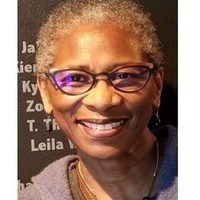The NextGen Precision Health Discovery Series provides learning opportunities for UM System faculty and staff across disciplines, the statewide community and our other partners to learn about the scope of precision health research and identify potential collaborative opportunities. The series consists of monthly lectures geared toward a broad multidisciplinary audience so all can participate and appreciate the spectrum of precision health efforts.
Information about the talk, including continuing education, is available below.
For questions about this event or any others in the Discovery Series, please reach out to Mary Hindle at hindlem@health.missouri.edu
Team Science: A Value Proposition
As societal problems and the technologies to solve them become more complex, team science has become essential to scientific progress, and a culture of multidisciplinary scientific collaborations an essential engine of innovation and discovery. The science of team science offers evidence-based problem-solving approaches and techniques to understand how teams collaborate, and insights and tools to more effectively facilitate collaborative research to achieve scientific breakthroughs otherwise not attainable with individual effort or sequential additive contributions. Foundational knowledge of team science will empower MU faculty to engage in and lead interdisciplinary teams to position MU at the cutting edge of scientific research, and to be competitive in securing external funding for research.
This talk is a value proposition, i.e. an attempt to illuminate the promise of how team science knowledge can be acquired/experienced to deliver a high return of investment to the MU research enterprise. Specifically, Dr. Chanetsa defines what team science is and is not, highlight the benefits and opportunities, and the strategies that we can employ to facilitate adoption of team science practice. Critically, Dr. Chanetsa discusses the challenges and barriers to adoption and success of team science and potential solutions.
°ؤأإءù؛د²ت¹ظحّ؟ھ½± the Speaker

For 15 years, she was a Health Behavior Scientist (Scientific Review Officer) at the Center for Scientific Review, National Institutes of Health where she obtained deep and extensive knowledge of the NIH grant funding enterprise, including writing and planning, coordination and execution of initial scientific and technical review of center grants, program project grants, institutional training grants, clinical trial project grants, RFAs, and other research project grants (in clinical, behavioral, translational and basic science), and technical and policy expertise on the protection of human subjects and inclusion of individuals in the lifespan in research. She previously held positions as an Epidemiologist, with the Missouri Department of Health and Senior Services, as an Associate Research Professor, °ؤأإءù؛د²ت¹ظحّ؟ھ½±-Columbia, and as director of the Missouri Behavioral Risk Factor Surveillance System. Internationally, she held the position of senior lecturer, University of Zimbabwe where she conducted the first ever Health and Nutrition Survey on chronic disease with funding from the WHO to address the increasing epidemic of chronic diseases that is situated in a nutrition transition. Her research focus and experiences center around nutritional epidemiology, health disparities and community health. As Associate Director for Research Administration, Dr. Chanetsa provides oversight and drives future strategy for enhancing and expanding Ellis Fischel Cancer Center’s (EFCC) research enterprise and coordinating cancer research across all Colleges/Schools within the °ؤأإءù؛د²ت¹ظحّ؟ھ½±. She is also responsible for facilitating research programmatic research activities including development of multi-project, cross-campus team science initiatives; and joint research investments between EFCC investigators and partners at the Siteman Cancer Center, Washington University, St. Louis.
Continuing Professional Education Credit
Nurses
Up to 1.0 contact hour will be awarded to all participants who view the live sessions in their entirety and complete the evaluation form.
°ؤأإءù؛د²ت¹ظحّ؟ھ½± is approved as a provider of nursing continuing professional development by the Midwest Multistate Division, an accredited approver by the American Nurses Credentialing Center’s Commission on Accreditation.
Midwest Multistate Division Provider Number MO1022-6
Physicians
The , School of Medicine, °ؤأإءù؛د²ت¹ظحّ؟ھ½± is accredited by the Accreditation Council for Continuing Medical Education (ACCME) to provide continuing medical education for physicians.
The Office of Continuing Education, School of Medicine, °ؤأإءù؛د²ت¹ظحّ؟ھ½± designates this live educational activity for a maximum of 1 AMA PRA Category 1 Credit(s)â„¢. Physicians should only claim the credit commensurate with the extent of their participation in the activity.
CONFLICT OF INTEREST: All persons with influence over the content of this program have been asked to disclose relevant financial interests in the last 12 months that might have an impact. John Spertus, MD, is a consultant for Jannsen, Bayer, Myokardia, Merck and Novartis, and receives research support from Abbott Vascular. No other speaker or planning committee member has a relevant financial interest.
Reviewed 2024-10-04